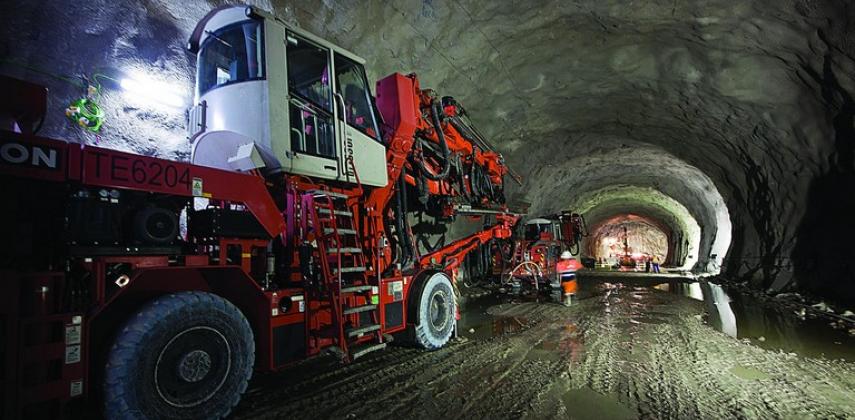Tunnels play a key role in transport and utilities infrastructure, while the technology and methods used to build them enable construction professionals to gain the experience needed to fast-track their careers.
With a glut of tunnelling projects across Hong Kong in various stages of development, and more in the pipeline, tunnelling experts say that the industry is in need of extra talent.
"With so many projects underway and others planned for the future, you could say Hong Kong is the best place in the world to be involved with tunnelling at the moment," says George Ramsbottom, chairman of the Institution of Civil Engineers Hong Kong Association (ICE HKA).
The construction of a network of tunnels for rail projects, large-scale sewage systems and road transport infrastructure has seen Hong Kong emerge as a major tunnelling centre in Asia.
"Looking ahead for at least the next five years, the future for the tunnelling industry looks very promising," Ramsbottom says. He adds that a significant number of graduates are recruited across the industry every year.
To join the profession as a junior tunnel engineer, new entrants require a degree in civil engineering, tunnel engineering or mining. Those wishing to progress to a higher grade need to obtain a charter designation.
Consultants and contractors that employ graduate engineers normally provide formal training programmes designed to achieve chartership. "This takes a minimum of three years but generally takes five years in order to obtain the necessary experience," Ramsbottom says. Charter status can be obtained through ICE HKA.
As the industry recruits and trains professional workforces to strengthen the tunnelling talent pool, ICE HKA would like to see more females join. "We are seeing a steady increase in the number of females specialising in tunnelling, but there is room for more," Ramsbottom says.
Andy Tauschinger, operations manager for Leighton Contractors (Asia), an international contractor in Hong Kong, says his firm is always interested in recruiting new talent. "Our doors are open to people interested in tunnelling and other areas of civil work," he says.
He adds that for young engineers who want to develop a full range of tunnelling techniques, Hong Kong is the place to gain experience. "There is probably no other city in the world where more tunnelling is taking place," he says.
Leighton offers graduates a flexible career map. "When young people join the company, we encourage them to look at the various projects Leighton is involved with, see what interests them, and after three or four years they can choose an area to specialise in," Tauschinger says.
Building and developing a pool of tunnelling experts is also a priority for Dragages Hong Kong. Vincent Avrillon, director of operations (civil works), says the company has a strong policy of recruiting and training local talent.
"Over the years we have built up a store of local tunnelling knowledge and experience," he says. "We provide training and on-the-job experience designed to enable our people to increase their level of responsibilities as they develop their careers."
Avrillon says a combination of expatriate and local tunnelling professionals who work together as a team creates opportunities for knowledge-sharing and drives innovation. "People who develop their tunnelling skills in Hong Kong tend to do so quicker than they would in other places," he says.
Dragages' current projects include the MTR West Island Line and Express Rail Link projects, the latter one of the largest tunnelling challenges ever undertaken in Hong Kong. The firm also worked on the Hong Kong West Drainage Tunnel project, for which it received a major international tunneling award.


